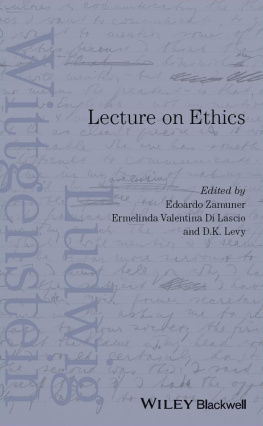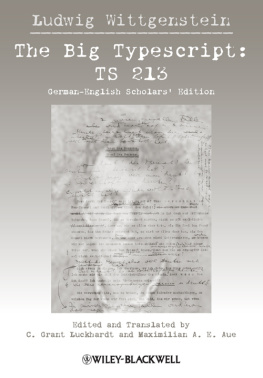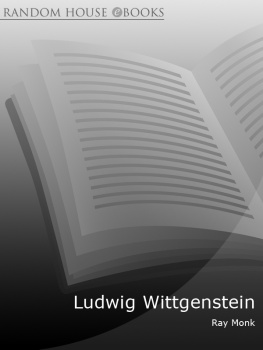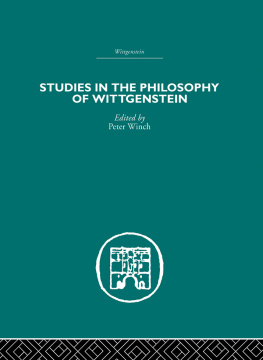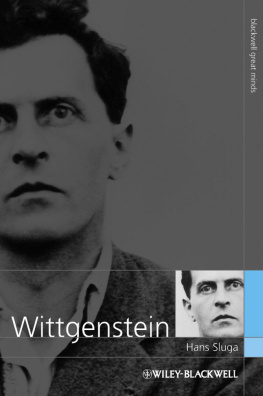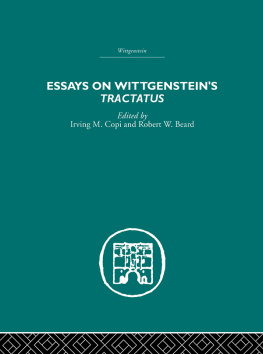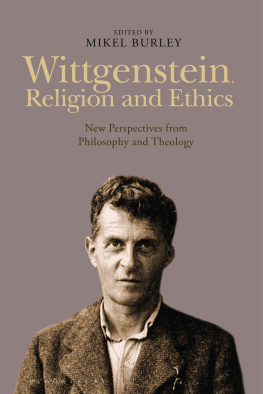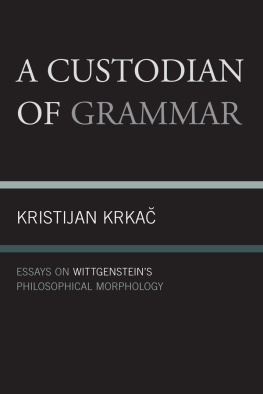
This edition first published 2014
2014 John Wiley & Sons, Inc.
Registered Office
John Wiley & Sons Ltd, The Atrium, Southern Gate, Chichester, West Sussex, PO19 8SQ, UK
Editorial Offices
350 Main Street, Malden, MA 02148-5020, USA
9600 Garsington Road, Oxford, OX4 2DQ, UK
The Atrium, Southern Gate, Chichester, West Sussex, PO19 8SQ, UK
For details of our global editorial offices, for customer services, and for information about how to apply for permission to reuse the copyright material in this book please see our website at www.wiley.com/wiley-blackwell.
The right of Edoardo Zamuner, Ermelinda Valentina Di Lascio and D. K. Levy to be identified as the authors of the editorial material in this work has been asserted in accordance with the UK Copyright, Designs and Patents Act 1988.
All rights reserved. No part of this publication may be reproduced, stored in a retrieval system, or transmitted, in any form or by any means, electronic, mechanical, photocopying, recording or otherwise, except as permitted by the UK Copyright, Designs and Patents Act 1988, without the prior permission of the publisher.
Wiley also publishes its books in a variety of electronic formats. Some content that appears in print may not be available in electronic books.
Designations used by companies to distinguish their products are often claimed as trademarks. All brand names and product names used in this book are trade names, service marks, trademarks or registered trademarks of their respective owners. The publisher is not associated with any product or vendor mentioned in this book.
Limit of Liability/Disclaimer of Warranty: While the publisher and authors have used their best efforts in preparing this book, they make no representations or warranties with respect to the accuracy or completeness of the contents of this book and specifically disclaim any implied warranties of merchantability or fitness for a particular purpose. It is sold on the understanding that the publisher is not engaged in rendering professional services and neither the publisher nor the author shall be liable for damages arising herefrom. If professional advice or other expert assistance is required, the services of a competent professional should be sought.
Library of Congress Cataloging-in-Publication Data applied for
Hardback ISBN: 978-1-118-84267-6
A catalogue record for this book is available from the British Library.
Cover image: First page of Wittgenstein MS 139a. Reproduced by permission of the Master and Fellows of Trinity College, Cambridge.
Acknowledgments
This volume is possible because of an understanding reached with Trinity College, Cambridge. The reproductions of MS 139a, MS 139b, and TS 207 are included by permission of the Master and Fellows of Trinity College, Cambridge. We thank David McKitterick and Jonathan Smith of Trinity College, Cambridge, for granting the rights to reproduce facsimiles of the manuscripts. We are grateful also to the Wren Library of Trinity College, Cambridge, for permitting Valentina Di Lascio extended access to the collection of Wittgensteins manuscripts and for producing facsimiles of MS 139a and TS 207. We also thank the sterreichische Nationalbibliothek, Vienna, for producing a digital replica of page 1 of MS 139b. We thank the Leverhulme Trust and the Mairie de Paris for having supported Valentina Di Lascios research, respectively, in the academic years 2009/10, 2010/11, 2011/12, and 2012/13. We must also thank Anat Biletzki, Francesco Borghesi, Walter Cavini, Jean-Pierre Cometti, Simonetta Nannini, and David Stern for their support for this project and for commenting on earlier drafts of . Notwithstanding the generous assistance rendered to us by the above, any errors or shortcomings remain solely our responsibility.
Introduction
The Content of a Lecture on Ethics
I
- Ludwig Wittgenstein delivered a lecture on ethics in Cambridge on November 17, 1929. Wittgenstein was forty years old and recently returned to Cambridge and academic philosophy after more than a decade away. The audience was a group called The Heretics who were not academic philosophers. The group was established to promote discussion of problems of religion and philosophy. Past speakers to The Heretics had included Virginia Woolf and past members included Wittgensteins dear friend David Pinsent who had died in the First World War. Wittgenstein was invited to speak by C.K. Ogden, a co-founder of The Heretics, who had been central in the publishing of Wittgensteins book Tractatus Logico-Philosophicus in 1922. The content of Wittgensteins lecture survives in the drafts he prepared for the lecture. (The drafts are found in of this volume.)
The Lecture on Ethics, as it is now known, is a unique work in Wittgensteins philosophical output. It is the sole lecture he delivered to a general, non-philosophical audience. It is the sole work Wittgenstein prepared exclusively about ethics. It is the sole lecture for which several complete drafts have survived. The four drafts of the lecture posited in this volume suggest Wittgenstein spoke directly from his prepared text, against his usual practice. All of these qualities give the lecture a special importance. - Ethics, being the Lectures subject, is its most important aspect in the context of Wittgensteins philosophical work. The Lecture is a sustained, written treatment of ethics, prepared for an audience. In the rest of his work, Wittgenstein wrote very little about ethics and almost none of it for an audience. Scattered throughout his philosophy working papers are short remarks about ethics, but none is even a page long; none constitutes a sustained train of thought. Simply by the quantity of content, Wittgensteins Lecture is a major part of Wittgensteins writing on ethics.
The singular philosophical importance of the Lecture derives from its being a considered train of thought that is a statement regarding ethics. It is not a personal note that records a moment of insight or a meditation. (Many of Wittgensteins diary entries concerning ethics were written in a code to prevent them from being easily read by anyone but Wittgenstein.) Rather, as Wittgenstein conceived the lecture, he intended to communicate to his audience as one human being speaking to other human beings. By this we can understand that he meant to make himself available personally to the audience without deference to his philosophical achievements or academic status. On the above basis, the Lecture has a good claim to being the most important work on ethics in Wittgensteins body of work. - If it is accepted that the lecture is important for documenting Wittgensteins view of ethics, one could nonetheless speculate that ethics was not of much importance to Wittgenstein since he wrote so little about it compared to other philosophical topics. This speculative conclusion is not at all credible. The conduct of Wittgensteins life, his correspondence, and the testimony of his friends and students all confirm that ethical concerns were of the utmost importance in Wittgensteins life. Wittgensteins diaries document his sometimes tortuous struggle to live up to his own high ethical standards. His friends recall his preoccupation with, above all else, being honest about the conduct of ones life. Neither was Wittgenstein reluctant to talk about ethical matters with his friends and fellows.
In despite of the undeniable importance that ethics had for Wittgenstein, it is striking that his philosophical work contains so little about ethics. One suggestion for this apparent contrast is that for Wittgenstein, philosophy itself was a kind of ethical endeavor. Indeed Wittgenstein advertised the manuscript of the
Next page
